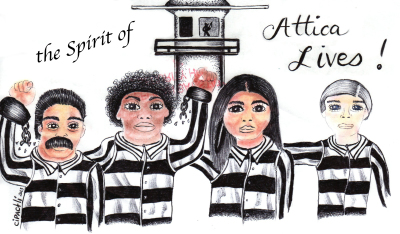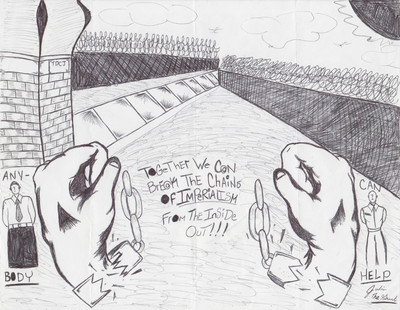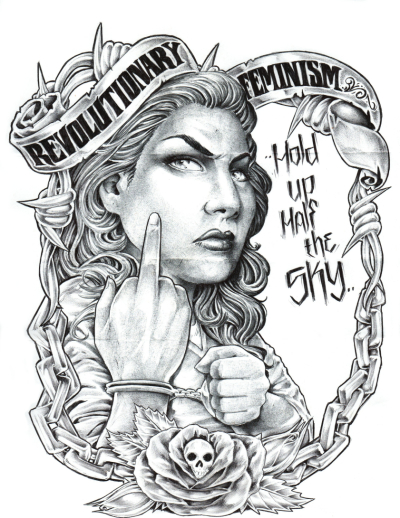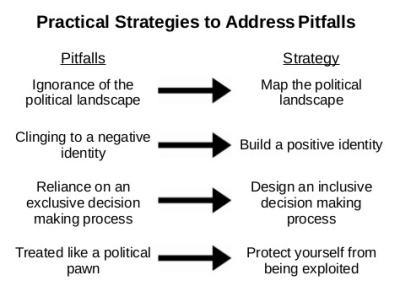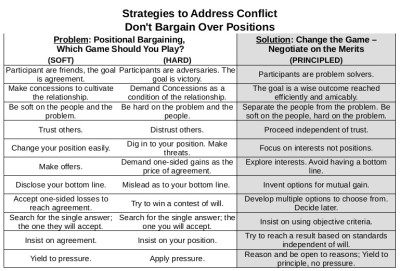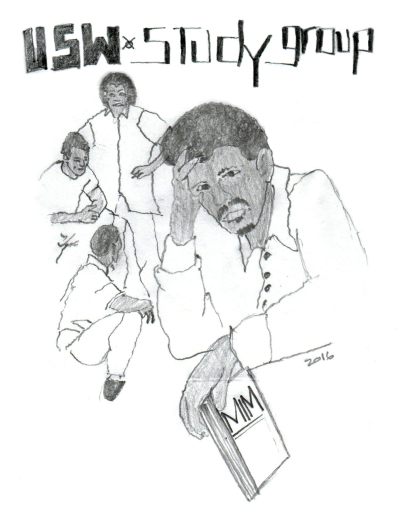
Texas Comrades Need to Step Up
This issue of ULK is being mailed to 48 states, yet over one third are going to Texas prisons. This can be attributed in large part to the void we’ve been filling with our Texas Campaign Pack, which has led to a huge influx of subscribers in that state. TDCJ has hidden its own grievance manual from prisoners since 2014, and more recently has effectively eliminated all access to the law library in many facilities. The MIM(Prisons) TX Pack helps people fight back and provides needed resources and information.
Yet when looking through the incoming mail, we notice some themes:
- Most people are focused only on their individual struggles.
- The end goal for most writers is prison reform.
-
There is a huge lack of engagement with politics.
Of course there are a number of exceptions to these themes, but the quantity of letters without political content is overwhelming. The vast majority of writers are only interested in getting the Texas Pack from us. Their engagement with the rest of our projects (even reading ULK, which is sent automatically to everyone who writes us) is a relative rarity. Those who report receiving the TX Pack and thank us for how helpful it is are mostly only using it to work on their own grievances. Some share it with others, but most don’t seem to be using it on campaigns together. Of the huge number of people who have been invited to our intro study group across the state, very few actually participated.
If our subscribers in Texas want everything they learned in the Texas Campaign Pack to actually be put to the best possible use, there are a few key points that have to be considered:
- Individual actions are small. The impact of a single successful grievance may feel huge to one persyn for at least a small period of time. But we must think bigger than our individual struggles. Especially when most of these struggles are unsuccessful.
- Reformism is very limited. Those in power stall at every opportunity. So while we might see a few victories, it’ll always be just enough to keep us motivated to bark up the same wrong tree for another several decades. In order to end what makes oppression possible and profitable, we need to put an end to the capitalist economic system. We’ve tried reforming it for hundreds of years. Is this what you expect it should look like by now?
- Apply principles of revolutionary theory for an end to oppression. The only way to achieve an end to this ongoing oppression is to learn some principles about revolutionary science. We need to know what has worked in the past, and what hasn’t. We need to learn lessons from history for how we can build our present-day movement to be as successful as possible at putting a quick end to capitalism and all its atrocities the world over. This takes hard work and dedication, and is the only way for future generations to come out from under the boot of the oppressors.
Once we learn some revolutionary theory, the next step is to put it into practice in our organizing work. Tons of people write to us about how difficult it is to find people in Texas who are interested in politics or coming together to protect themselves from abuses by staff. This is because, despite all the atrocities in TDCJ facilities, TDCJ achieved a delicate balance between privileges and punishment, that keeps the population complacent but not so repressed that they are inspired to step up and do something about it. This dynamic has been going on for eons. The perfect example of this is people who have given up filing grievances because the grievances go unanswered, and instead they just watch TV. If not for the TV or other distractions/privileges, unanswered grievances should lead someone to want to take further action to protect their humynity. By restricting indigent mail and eliminating law libraries in many facilities, TDCJ is signing itself up for some contempt amongst its wards, but only if those who are politically conscious take the next steps to educate and organize.
The most basic organizing steps to try:
- Share the TX Pack with others, and have them write to MIM(Prisons) to get on our mailing list.
- Write grievances together. Even if for individual issues, build your collective knowledge about what makes a grievance successful. Don’t let the administration give you the runaround.
- Unsuccessful grievances are part of the process. We don’t expect to actually have victories with these grievances, but we file them to go through the process of administrative remedies, and build unity through action. When the grievances come back rejected, use them as tools to show how backward the administration is, and how the grievance system is set up to fail.
- Meanwhile, build political consciousness: Study articles in ULK, and broaden your perspective of how the prison struggle fits in with the struggle of the internal semi-colonies, and oppressed nations worldwide.
MIM(Prisons) offers a multitude of ways we can support you in your organizing. We can provide lit and study guides if you want to start a study group. We also recently revamped our Prisoners’ Legal Clinic, and you can use your legal expertise to help others with their cases and help them learn some revolutionary theory. Our literacy program is coming up too, so maybe tutoring others in how to read and write in a Serve the People Program is a role you can play. Or if you’re an artist or writer you can contribute articles for ULK, which then gets mailed to people all across the country. If you have access to funds, send us a donation so we can continue sending the TX Pack and ULK in to the large number of subscribers in Texas.
In sum, Texas prisoners need to step up. We all already know that filing individual grievances is a joke. The Texas Campaign Pack has info for how to make the most of individual grievances, so we can have a few more successes, but the administration can still just toss out or ignore whatever they don’t feel like dealing with. TDCJ headquarters in Huntsville is no better. We hope our comrades in Texas who have been so diligently putting the Texas campaign info to good use will make this connection to the bigger picture and adjust accordingly.








